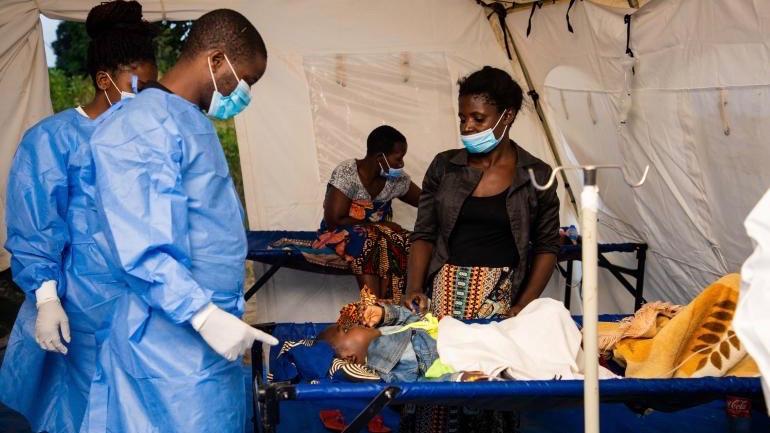
Zambia faced a distressing health situation on Tuesday as it grappled with escalating cases of cholera alongside its most severe anthrax outbreak in over a decade.
Authorities reported four cholera-related fatalities in the capital city of Lusaka within a 24-hour period, raising the national death toll to 64 this year.
In Lusaka alone, the Zambia National Public Health Institute documented a minimum of 46 deaths and over 1,600 infections attributed to cholera.
Cholera, a bacterial disease primarily transmitted through contaminated food or water, remains a pressing concern.
Health Minister Sylvia Masebo underscored the government’s efforts to supply chlorine for water treatment in severely affected areas while urging strict adherence to hygiene protocols.
These fatalities emerged shortly after the World Health Organization (WHO) cautioned that Zambia was undergoing its most extensive anthrax outbreak since 2011.
The country has reported a minimum of four deaths and almost 700 suspected cases of anthrax since the year’s commencement, according to WHO reports.
Anthrax, transmitted via bacteria present in soil, commonly affects grazing livestock and wildlife. Human infection can occur through inhalation of spores, consumption of contaminated food, or contact with diseased animals, such as through cuts in the skin.
WHO’s findings revealed that 26 cases resulted from the consumption of meat from three wild hippopotamus carcasses.
The organization highlighted a “high” risk of anthrax spreading to neighboring countries due to frequent movements of animals and people.
This year, Kenya, Malawi, Uganda, and Zimbabwe also grappled with anthrax outbreaks, collectively recording over 1,100 suspected cases and 20 deaths across these five nations, as per WHO records.
